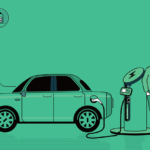Roland Berger: Mobility of the future: China speeds ahead Go back »
2018-10-01 | Beijing
China is fast becoming the driver of global innovation in the automotive industry. In the race to claim a slice of the future market for mobility services, the Middle Kingdom has taken the lead. One in every two electric cars sold in the first half of 2018 went to a customer in China. The country has also seen a massive expansion of charging infrastructure in the past 12 months and has opened new test roads for autonomous vehicles. Chinese consumers are supportive of the technological advances and are making good use of mobility offerings like car sharing and ride hailing.
"No other country is as advanced and as open to new technologies and mobility services as China. Most of the traditional automotive nations are stagnating on this front, or are making slow progress at most," said Wolfgang Bernhart, Partner at Roland Berger. "China is not only the world's biggest market for cars and an important manufacturing base – it has, in fact, long since moved on from being the workbench of industry to being the R&D lab."
China's leading role can be seen most clearly in the scale of its expansion of the infrastructure needed for battery electric vehicles. Despite having an enormous road network within its borders, in the past 12 months the country has managed to double the amount of capacity it offers – from 2.5 charging stations per 100 km of roadway to 5.7 (Germany 4.5, France 2.3, USA 0.3 stations per 100 km of roadway). This is money well spent, given that Chinese consumers believe in e-mobility more than many others: 65 percent of Chinese survey respondents can imagine buying an electric car as their next vehicle. As such, they are much more open to innovation than consumers in Western Europe, where the level of interest is stagnating at a mere 30 percent.
For more information, please visit the source website below.
Source: Roland Berger


